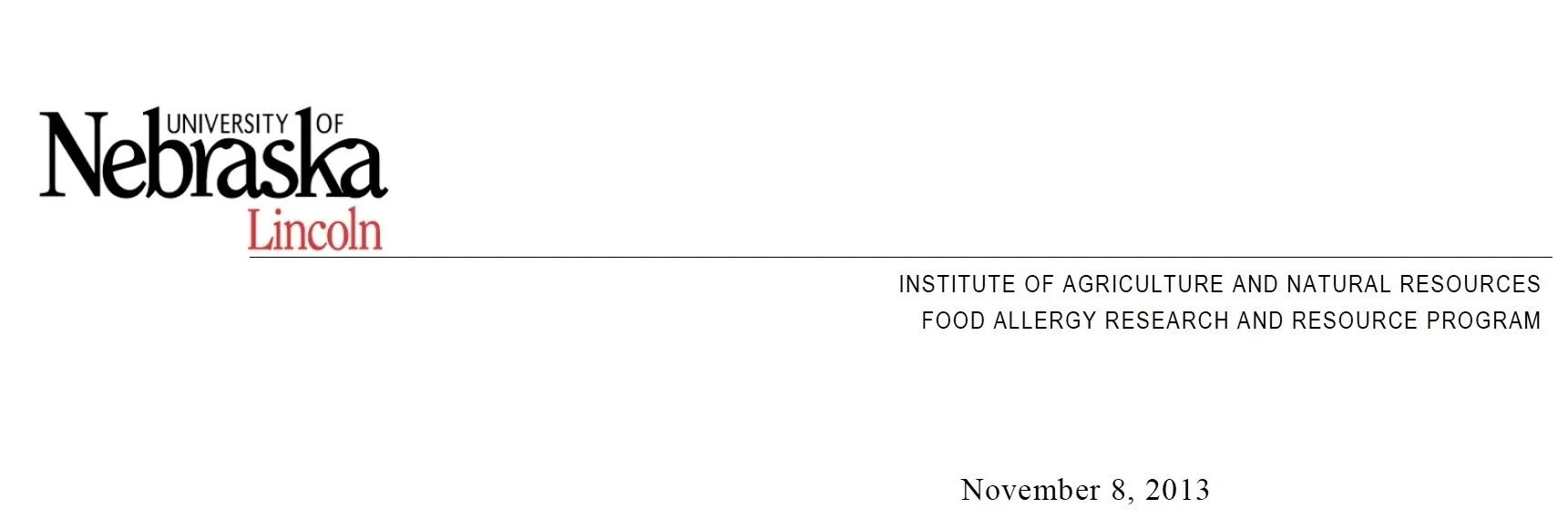Coconut Water Allergen FARRP Statement
Richard A. Aust
Director, Technical Services
iTi Tropicals, Inc.
30 Gordon Avenue
Lawrenceville, NJ 08648
Dear Mr. Aust:
As requested, this letter contains our expert opinion on the need for extensive allergen cleaning after use of coconut water in some formulations processed on shared equipment in your manufacturing facility. Coconut water contains less than 1% protein on average according to the USDA National Nutrient Database for Standard Reference.
In our expert opinion, extensive allergen cleanup is not necessary following the use of coconut water. We believe that this expert opinion is completely supported by the scientific and clinical information on coconut and coconut water together with the known low protein content of coconut water.
In the U.S., tree nuts are considered as commonly allergenic foods as defined by Congress with the passage of the Food Allergen Labeling & Consumer Protection Act (FALCPA) of 2004. A definition of tree nuts was not included within the text of FALCPA. But, subsequently, the U.S. Food & Drug Administration defined a list of tree nuts on their web site that includes coconut. That list has been disputed because coconut palms are not trees but this guidance list remains in effect. Thus coconuts are recognized as a tree nut by FDA rightly or wrongly and the food industry must pay heed to that fact. Thus coconut and any ingredients derived from coconut must be clearly declared on the ingredient list of products where those ingredients are part of the formulation. iTi Tropicals must declare the presence of coconut water on the ingredient label of all products containing that ingredient.
Coconuts are a known allergenic food and coconut allergy has been reported in the clinical literature. However, coconut allergy is not very common. Coconut allergy appears to be distinct from other tree nut allergies likely due to the acknowledged genetic differences. Evidence indicates that coconut allergens are found in the protein fraction of the coconut, primarily the proteins found within the coconut meat. However, allergic reactions to coconut water have not been reported in the clinical literature perhaps owing to the low protein content of coconut water.
With respect to the cleaning of shared equipment following the processing of formulations containing coconut water, FALCPA does not stipulate the conditions under which extensive allergen clean-up must be conducted. When processing equipment is then used to manufacture other products that do not contain intentionally added coconut water, dilution would occur with the other product and would quickly reduce any coconut allergen residues by additional orders of magnitude. With this reasoning, no conceivable risk exists from the use of shared equipment in this circumstance and no need exists for extensive allergen cleaning if coconut water is the only source of allergen concern. Attempts to assess the adequacy of any preventative controls would be unnecessary because the allergen residue testing methods are not sufficiently sensitive in our experience to detect coconut protein/allergen residues on processing equipment surfaces, rinse water or in any subsequent products manufactured on shared equipment when coconut water was used as the coconut-derived ingredient. The lack of the ability to detect coconut protein residue in coconut water itself is acknowledged by at least of one the two commercial manufacturers of analytical methods that market coconut ELISA kits and acknowledge that the use of the kit is only intended for detection of coconut protein when the source of cross-contact is due to coconut meat. Allergen clean-up after formulations containing coconut water as the sole ingredient derived from commonly allergenic sources is not necessary in our opinion as outlined above.
You have my permission to share this letter and my opinion with auditors, customers, and regulatory authorities.
Sincerely,



